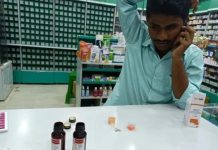By Mustapha Jallow
Scores of health experts, scientists, and administrators in West Africa are currently discussing a way forward on how best they could tackle and protect the region from outbreak of diseases.
“It is always up to us to recall the persistence of emerging diseases in the world, particularly in Africa and West Africa at large,’’ remarked DrKoffi Eugene, Principal Program Officer (PPO) for Regional Animal Health Center, ECOWAS Bamako.
“These diseases are known for their cross-border nature, cause health and economic losses both worldwide, especially in Africa,’’ he added.
Dr Koffi made these remarks during the 4th annual ECOWAS regional reference on laboratory networking meeting hosted in Banjul, the Gambia by the Ministry of Health. With themes: “Laboratory information management system, biosafety, and biosecurity, entomological surveillance of arboviruses and quality management system.’’
The four-day regional meeting was organised by the West African Health Organization (WAHO)-ECOWAS in collaboration with the German government, KFW, GFA, the Gambia health ministry, and other international partners.
Held at the International Conference Center in Bijilo on June 12th, 2024, the annual meeting brought representatives of both international and local health organizations, scientists, experts, and member bodies across West Africa. The goal of this session – is to support ECOWAS countries to work together in enhancing biological diagnosis quality, and accessibility and strengthen epidemic-prone disease control in West Africa.
DrKoffi further said: “I remain convinced that the exchanges will be very fruitful, important challenges and opportunities will be identified to always improve diagnosis and quality at the laboratory level for better disease control.’’
He takes regional members through March 2024, when the presence of avian influenza A (H5N1) was detected in mammals, saying all this could make it increasingly difficult to monitor these pathogens to improve public health and to empower the population.
“It is up to us to combine more efforts to deal with the various diseases,’’ he advised.
He also welcomes the efforts made by WAHO and its partners, for their support to the various regional laboratories for the early detection and control of threats to public health and/or diseases with epidemic potential.
Dr. Koffi went on to commend CRSA, WAHO, WHO, FAO, and all other development partners for their stance in the fight against diseases in the sub-region.
While declaring the session open on behalf of the health minister, Babanding Sabally, the deputy permanent secretary for Technical at the health ministry thanked WAHO for choosing the Gambia to host such an important convergent.
“For us to achieve our targets in the health delivery system – we must ensure that our labs are functioning very well. It is not a secret that the laboratory services in our region are struggling,’’ he stated.
With the advent of COVID-19, he suggested that more efforts need to be put in place to revitalize and strengthen laboratory services in West Africa. He also talked about how the Gambia suffered with limited lab systems, saying the country was entirely dependent on MRC for most of its laboratory services. For now, he added lots of efforts are being made by the government to strengthen laboratory systems in the Gambia.
For his part, Dr Donald I. Ofili, an official from the Medical Laboratory Science Council of Nigeria and chair of the regional meeting said this meeting gives the opportunity to member-states to network and discuss issues bothering the region.
“It’s important to know that we are here for a very serious meeting. Delegates are expected to well represent their countries in terms of providing the updates – that are needed for us to know exactly where we are in the implementation,’’ he told the delegates.




















